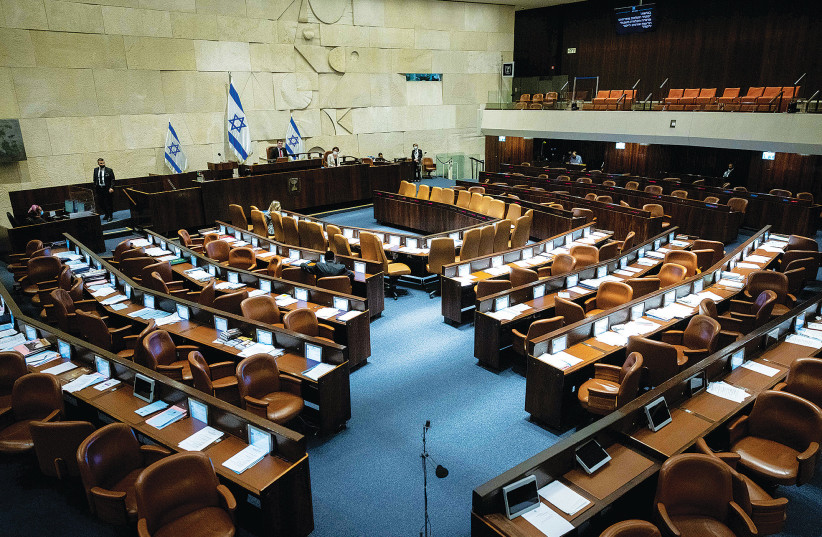No chance of Israeli judicial reform agreements with Yesh Atid – Likud
The government is making “every effort” to resolve the argument over its proposed overhaul of Israel’s judicial system through dialogue, Prime Minister Benjamin Netanyahu said ahead of the weekly cabinet meeting on Sunday morning.
“With goodwill by both sides, I am convinced that it is possible to reach agreements – and I give this my full backing,” Netanyahu said.
The prime minister’s comments contradicted other senior Likud members, who said on Sunday morning on KAN radio that the Likud will not be able to reach agreements with Yesh Atid at the ongoing negotiations at the President’s Residence over the government’s proposed judicial overhaul, since the opposition party is doing “everything it can” in order to prevent agreements in talks.
Yesh Atid is insisting on including the issue of a haredi conscription law in the talks, and also has different opinions than National Unity on other matters relating to the judicial reform – and therefore, the Likud will only be able to reach agreements if talks are held only with National Unity without the presence of Yesh Atid, KAN quoted the Likud members as saying.
KAN quoted “senior Yesh Atid members” as saying in response that cooperation between them and National Unity is close and that they see eye-to-eye. Yesh Atid asserts that Likud is attempting to spread conflict in the opposition, and that the real issue is Yesh Atid’s refusal to agree to select two judges on the judicial appointments committee, KAN reported the Yesh Atid members as saying.
 THE KNESSET will return to session next week amid the temporary freeze in the judicial reform legislation. (credit: YONATAN SINDEL/FLASH90)
THE KNESSET will return to session next week amid the temporary freeze in the judicial reform legislation. (credit: YONATAN SINDEL/FLASH90)Justice Minister Levin says that agreement requires real negotiation
Netanyahu’s comments came after Justice Minister Yariv Levin said during his speech at a pro-reform rally on Thursday that “agreement means real negotiations and also a willingness to accept large parts of the reform and not to hold discussions for over a month and say ‘no’ to every proposal.”
National Unity leader MK Benny Gantz responded that Levin’s attacking the opposition over the negotiations, which are being held behind closed doors, raised “difficult thoughts” about the government’s actual intention of reaching an agreement.
The prime minister addressed a number of other issues in his address at the start of Sunday’s cabinet meeting.
Regarding the national budget, the prime minister said that the 2023-2024 budget and accompanying Economic Arrangement Laws, which are being prepared in the Knesset’s committees, will bring “economic stability” and will launch the economy forward to new achievements.
“It is precisely during days of economic slowdown and global inflation that Israel can – and needs to – leap forward. We did this during the coronavirus. We did so during previous global economic slowdowns. And we will do so this time as well. We will bring economic stability. We will expand competition. We will bring in international retail chains to lower prices,” Netanyahu said.
Regarding security, the prime minister said that his government would not enable Iran to wrap a “stranglehold” of terror around Israel’s neck. Regarding internal security, the prime minister reiterated his promise to National Security Minister Itamar Ben-Gvir to form a National Guard, calling this a “revolution,” alongside billions of shekel to add thousands of police officers, “all to restore the personal security for every Israeli citizen, including in the Arab sector.”





Comments are closed.